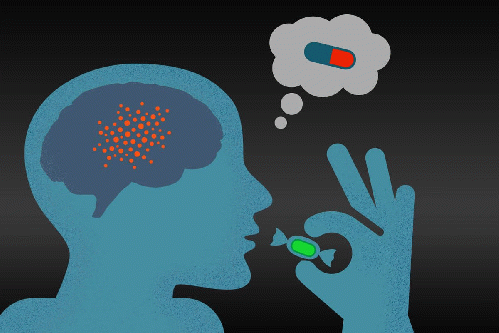The placebo effect is a perennial mystery in medical theory and practice. It is typically about as powerful as anything Western medicine has to offer. That is to say, just about any medicine you take, half the benefit can be obtained from taking a pill that has no biochemical activity at all. This in itself points to the fact that the mind has a powerful effect on the body, far greater than biochemical models can account for.
Western medicine has recognized the placebo effect, but rarely has there been any research to explore ways to enhance it. If just handing a patient a pill can do as much as all of the biochemistry that we understand, then imagine the healing that might be available if we really studied the mind/body interaction and learned to optimize the healing powers of the mind.
The standard explanation for placebo effect has been that the patient expects to get better because an authority figure (doctor, representing the power of medical science) has given him good reason to think he is being treated. But there's something even more mysterious going on.
The placebo effect works even when the patient is told, This is just a placebo. In this study of lower back pain, it worked better than the "treatment as usual", which presumably includes both placebo and biochemical benefits.
The placebo effect has been growing much larger over time. What's going on?
Perspective piece by Ted Kaptchuk (Harvard Medical School), who has done the most to research this field. New study by Kaptchuk of cancer side-effects






